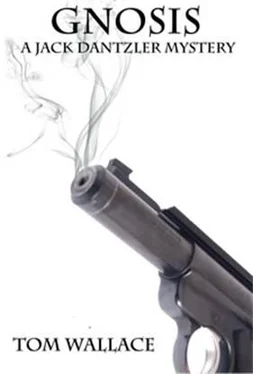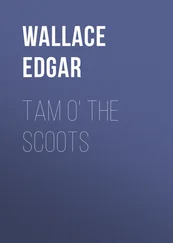E
Dantzler was impressed. By looking into the backgrounds of pallbearers, which Dantzler hadn’t specifically requested, Eric had clearly done far more than expected. An additional two hundred background checks was nothing to take for granted. Dantzler made a mental note to mention Eric’s extra effort to Captain Bird.
Next, Dantzler turned his attention to the three manilla folders lying in a straight row. The first thing he noticed was that Eric lined them up alphabetically by last name. He also noticed the folders were not particularly thick, which meant Eric had printed only the information he deemed important or noteworthy. Dantzler trusted Eric’s judgment, so he had no problem with not getting everything in the various local, state, and federal data bases relating to each man. If he needed more he could always get it later.
Dantzler pulled back a chair, sat, and picked up the first folder. On the outside, Eric had typed:
Lawrence Edward (Larry) Gadd
2/10/56 – 4/9/11
Lexington, Ky.
Leaning forward, Dantzler opened the folder and began reading. The information consisted primarily of the individual’s obituary notice, arrest records, prison records, bank statements, and employment records. There were mug shots from the time of arrest, as well as driver’s license photos.
According to the Herald’s obit, Larry Gadd had peacefully been “taken up to his Lord” after a lengthy illness. He was survived by his wife, Karla, two brothers, and a sister. Cause of death was not specified. It needn’t be. The answer could be found near the end of the obituary notice, where those wishing to make a financial contribution were asked to send money to The Markey Cancer Center.
Dantzler continued reading, jotting down notes as he did. Before reaching the halfway point in the file, he had become convinced Gadd was not the killer. Gadd was no saint by any stretch of the imagination, but he wasn’t a cold-blooded murderer.
The records indicated Gadd served a stint in Eddyville State Prison from 1977 to 1979 for armed robbery. Prior to committing that crime, he had been arrested twice, once in 1975 for selling drugs, and again in 1976 for breaking and entering. Both charges were pleaded out by his attorney, Colt Rogers. Gadd served no time for either offense.
There were no recorded arrests or run-ins with the law subsequent to his release from prison. For the past twenty-five years, Gadd worked as a mechanic at a local automobile dealership. Straight-arrow, solid Joe-Citizen stuff. Apparently, hard time in prison made an impact.
Dantzler thought about this for a while. Gadd probably was a long-shot candidate at best, but Eric was right to include him. And he knew why Eric did so. He also knew why Eric included the other two as well.
He put down Gadd’s file and picked up the one in the middle.
Bobby Lee Maxwell
11/15/61 – 4/14/11
Lexington, Ky.
Maxwell’s obituary notice was brief, consisting of a single paragraph. He died of natural causes, although the exact cause of death was not given. No surviving family members were listed, nor were pallbearers named. There was also no mention of his being “taken up to his Lord.” Had he been, Dantzler concluded, it would not have been peacefully.
Bobby Lee Maxwell was anything but peaceful. He was a bad dude with a strong propensity toward violence. And the records attested to that fact.
On nine separate occasions, from 1978 through 2002, Maxwell had been arrested for assault and battery. The victims ranged in age from eighteen to forty-seven. Their injuries ran the gamut from a simple black eye to serious head wounds. In one instance, the victim was beaten so severely he was in a coma for three days.
Despite the damage he inflicted, Maxwell never did serious jail time and no prison time whatsoever. In each instance, he pleaded to the lesser charge of simple assault. Served a few days in jail, paid a small fine, and then was sent on his way, no doubt on the prowl for the next person to smack around.
Maxwell’s lawyer? Mr. Cop-a-Plea himself. Colt Rogers.
Sean Montgomery had been right on the money about Rogers. He was a plea-bargaining machine.
Dantzler picked up the third file and began reading, only half expecting to find information that would trigger his interest. He couldn’t have been more wrong. Before he finished reading the first page, he had concluded that this man was a definite possibility. Eric might have struck gold with this guy.
Douglas Keith Reynolds
7/6/51 – 4/16/11
Lexington, Ky.
Unlike Gadd and Maxwell, Reynolds did not die of natural causes. He died in an automobile accident while returning from a trip to Florida, leaving behind a wife, three children, and five grandchildren. There were other differences as well. For one, Reynolds was not originally from Kentucky. He had been born and raised in Chicago. Also, Reynolds’s obituary notice was lengthier than either Gadd’s or Maxwell’s, due mainly to a long paragraph detailing his military accomplishments.
Reynolds served two tours in Vietnam, distinguishing himself in such a manner that he earned a bountiful harvest of combat commendations, including the Purple Heart (twice), Bronze Star, and Silver Star. The article also said he single-handedly took out two enemy machine gun nests, and though severely wounded, he managed to carry a badly injured fellow GI to safety. The paragraph ended with a quote from an ex-soldier, Chris Daniels, stating that he was one of many who felt that “Doug deserved the Medal of Honor for his heroic efforts in Nam. It is criminal he didn’t receive it.”
“Criminal” was definitely an appropriate term for Doug Reynolds. His rap sheet, dating back to his teenage years, chronicled a life filled with violence, death, drugs, and other assorted anti-social acts. Here was a man whose behavior was that of a jungle predator, a man lacking judgment, restraint, kindness, or respect for his fellow citizens. There was no line he wouldn’t cross to get what he wanted.
Reynolds had been arrested and tried for murder in 1983, then re-tried in 1985. In both cases, he was acquitted when the jury failed to reach a verdict.
He was also arrested in 1981 for assault and battery; 1987 for burglary; 1988 for rape; 1991 for possession of a controlled substance; and 1998 for spousal abuse. In each case, he pleaded to a lesser charge. Reynolds’s punishment for committing these acts? A grand total of thirty-nine hundred dollars in fines and a three-month stay in county lockup.
Talk about punishment not fitting the crime.
And the magic man who engineered Reynolds’s escape from serious punishment? None other than Colt Rogers.
Reading this information, seeing hardened, violent offenders get off with little more than a slap on the wrist, caused Dantzler’s stomach to churn and his anger to rise like bile in his throat. How many victims could have been spared injury and harm had thugs like Reynolds and Maxwell been taken off the streets and placed behind bars like they deserved. Why were men who thrived on violence continually allowed to walk away untouched by the hands of justice? How can a system even call itself just when the innocent suffer and the criminals go unpunished?
In moments like this, Dantzler wondered who committed the more egregious sin-the criminal or the attorneys who defended them. Right now, he rated it a toss-up.
Going through each file, he extracted a picture of the three men and carefully studied their faces. Maxwell was the smallest of the trio, standing five-six and weighing one-fifty. He had blond hair, blue eyes, and a scarred face that bore testament to a lifelong battle against acne.
Dantzler had seen plenty of guys like Maxwell, hot-headed runts who were quick with their fists, and who were always ready to inflict hurt on another person, usually someone physically bigger and stronger. They tended to throw the first punch, and they weren’t above grabbing the nearest available weapon, a bat, club, or tire iron, if they felt the need to stack the odds in their favor.
Читать дальше











